Marcus Miller's top 5 tips for bassists
"I would advise bass players to go and play with other musicians, every opportunity they get"
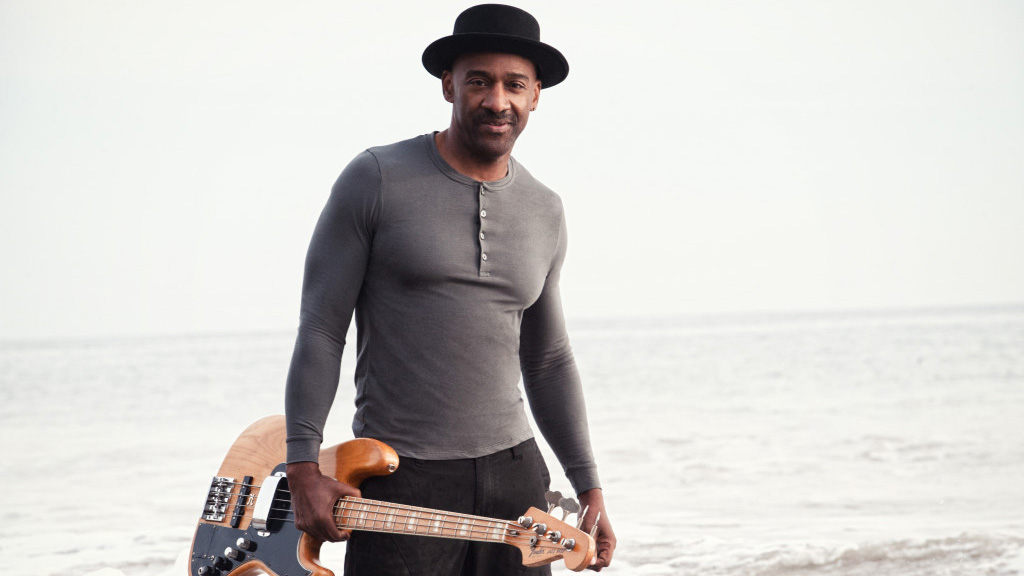
Introduction
Just where do you start with a musician like Marcus Miller? As well as being widely regarded as one of the planet’s greatest living bass players, Marcus is also a celebrated producer, composer, arranger, multi-instrumentalist and solo artist.
While his production and composition credits include legendary artists as varied as Miles Davis, Luther Vandross and Aretha Franklin, Miller’s session CV – which includes around 500 albums – is equally as staggering.
Jay-Z, Michael Jackson, Herbie Hancock, Mariah Carey, Frank Sinatra, George Benson, Elton John, Roberta Flack, Billy Idol, Bryan Ferry and Dizzy Gillespie are just a few of the artists that have called upon Marcus’s extraordinary talents on the four-string.
Since 1983, Miller has also enjoyed significant success as a solo jazz artist and bandleader. His latest Blue Note album Afrodeezia, released earlier this year, is an incredible achievement on many levels.
The musical approach and concept were inspired by Miller’s role as a UNESCO (United Nations Educational, Scientific and Cultural Organization) Artist For Peace and as a spokesperson for that organisation’s long-running Slave Route Project. Sessions were recorded across the US, Europe, South America and Africa and collaborators included Chuck D, Keb’ Mo’ and Lalah Hathaway in addition to an extensive list of leading jazz players and other musicians from across the world.
Before he gives us his top 5 tips for bassists, Marcus tells us how working in the studio with African musicians was a particularly eye-opening experience.
“Afrodeezia was an album where I actually decided to follow the voyage of my ancestors, and I wanted to collaborate with people from different cities and different places along the slave route,” explains Marcus, who was aided by Senegalese bass player Alune Wade in setting up an early Paris recording session with some leading African musicians.
“It was just fascinating, man, to see how much of what I know as an American musician comes from West Africa. When I’m working with American musicians, they’ll get the notes right away when I’m trying to show them a piece of music that I’m working on, but it can sometimes take me a long time to get the right feeling and the right rhythmic lilt.
“But when I went to play with these Senegal cats, the rhythm was the easy part! They got it straight away! I just then had to work on the notes because some of them weren’t necessarily jazz musicians, so some of my notes probably sounded a little from outer space for them. They were amazing.”
Afrodeezia will form the musical focus point for Marcus Miller’s imminent UK shows, which showcase a truly stellar band line-up, including Mino Cinelu (percussion), Alex Han (saxophone), Brett Williams (piano) and Marquis Hill (trumpet).
Marcus Miller UK tour dates
Monday 19 October | LIVERPOOL Philharmonic
Tuesday 20 October| GATESHEAD Sage Gateshead
Thursday 22 October| EDINBURGH Usher Hall
Friday 23 October| MANCHESTER Bridgewater Hall
Saturday 24 October| CORK Jazz Festival
Monday 26 October| LONDON Barbican
Wednesday 28 October| BIRMINGHAM Town Hall
Afrodeezia is available now via Blue Note Records.
Don't Miss
Stu Hamm's top 5 tips for bassists
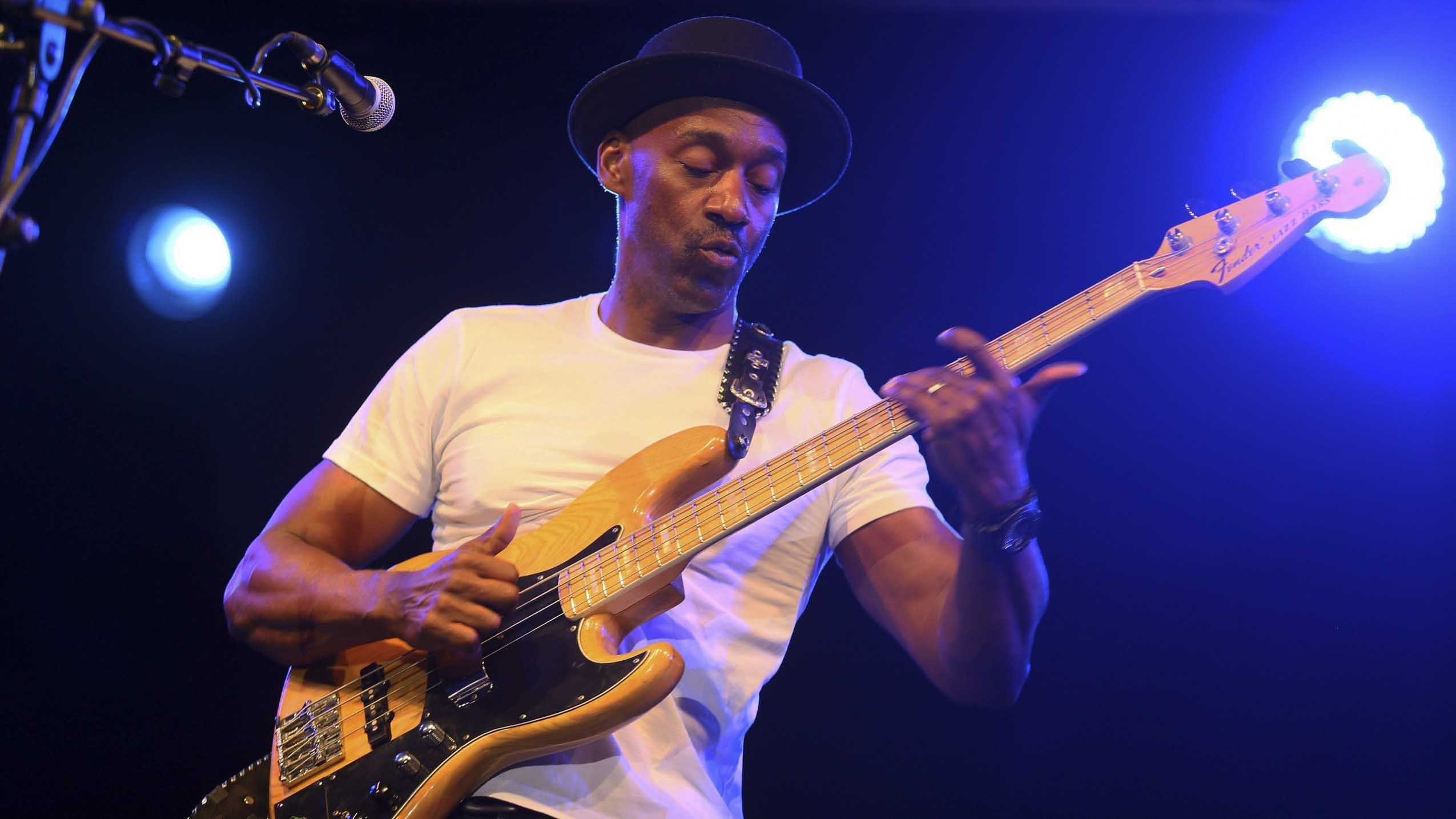
1. Play with other musicians
“You know, we’ve got a new generation of bass players and I call them bedroom players because they basically play solo on a six-string bass. They can play the bass and the chords and the melody, but they’re more like guitar players because they play by themselves a lot.
“It’s beautiful… but I would just warn the guys that you really need to make sure you play with other people, because that’s a whole other education. Bending your rhythm to match a drummer or a guitar player and really learning how to work in a group is important.
“The one complaint I’ve heard from other musicians about the new generation of bass players is that they don’t know how to make the music feel good. They know how to play beautiful and very technically interesting things, but they kind of miss the main reason for playing music!
“I would advise bass players to go and play with other musicians, every opportunity they get. It’s not as easy these days because everything happens over the internet, so you don’t have guys playing together like they used to.
“I went to high school with the drummer Omar Hakim and we had a little band. Our band leader would show us a groove with bass and drums, and we’d start playing the groove and he would say, ‘Okay, you all keep playing that. I got to run some errands and I’ll be back in about an hour but don’t stop playing that groove 'til I get back!’ And we would just sit there, man, just playing this groove over and over again… it changes you, man, when you have to play the same thing over and over again and make it feel good.”
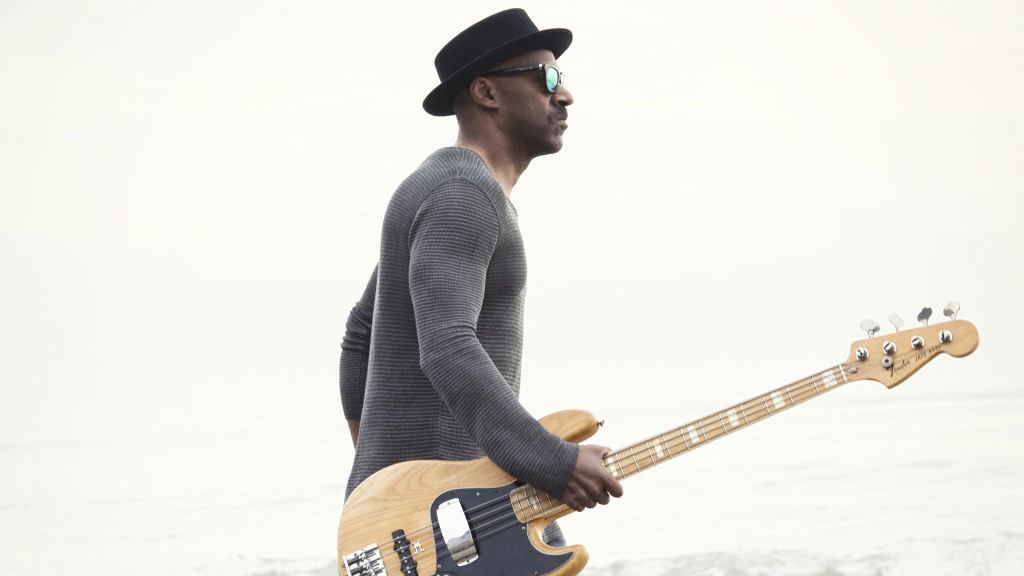
2. Pay attention to your tone
“Pay attention to your tone and how your tone maybe needs to be adjusted for different situations. If you’re playing by yourself and you’re playing solo, you can use a tone that features midrange and high-end, which are things that make the bass really clear.
“However, if you’re supporting a band and you’ve got other instruments in the mid-range and you’ve got other instruments in the high-end, your job might be to supply a really fat solid bottom - the more traditional role of the bass!
“You just need to be aware of where you are and what might be necessary from you. If you’ve got guitars and keyboards and horns that all operate in the same midrange area, then you might need to get a big thick fat sound and fill the band up and help the drummer out, you know what I mean? It’s really important to do that.”
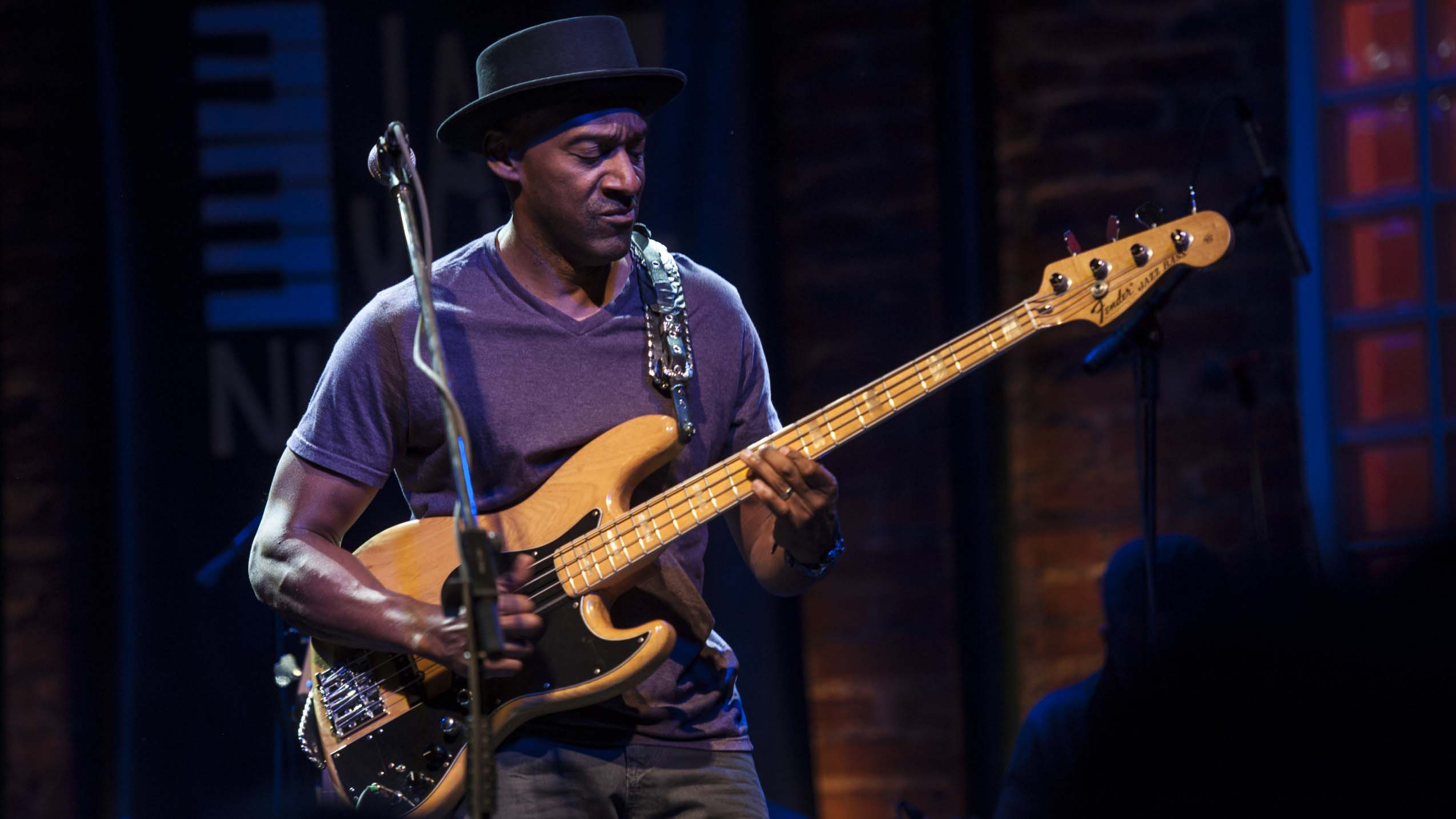
3. Listen beyond your instrument
“I’m a producer, and when we record a track, we record four takes one after the other and then the job is to decide which is the best take. I like to ask the musicians which one sounds the best to them.
“And the guitar player will usually say, ‘Well, I like number two’ and I know why the guitar player says he likes number two, because he played well on number 2. Then I’ll ask the piano player, ‘Which one do you like?’ And he’ll say, ‘I like number four’ because he played the best on number four…
“But there are some musicians that you ask and they’ll say, ‘I think number one felt the best’ or ‘I think number three felt the best’. They’ll say, ‘I didn’t play my best on it, but overall, the music sounded the best to me.’
“I really appreciate that kind of input, man, and I really appreciate somebody who listens to the whole music and tries to figure out what makes it feel good. Young musicians can be so focused on their own thing so when they listen to music, they listen to their own instrument.
“You’ve got to figure out what you’re playing, man, but listen to the whole sound and figure out what you can do to make the song sound good - like, don’t play your crazy sweet bass lick right in the middle of when the singer says the most important word in the song, you know what I mean? Listen to the song, man, and make the song sound better.”
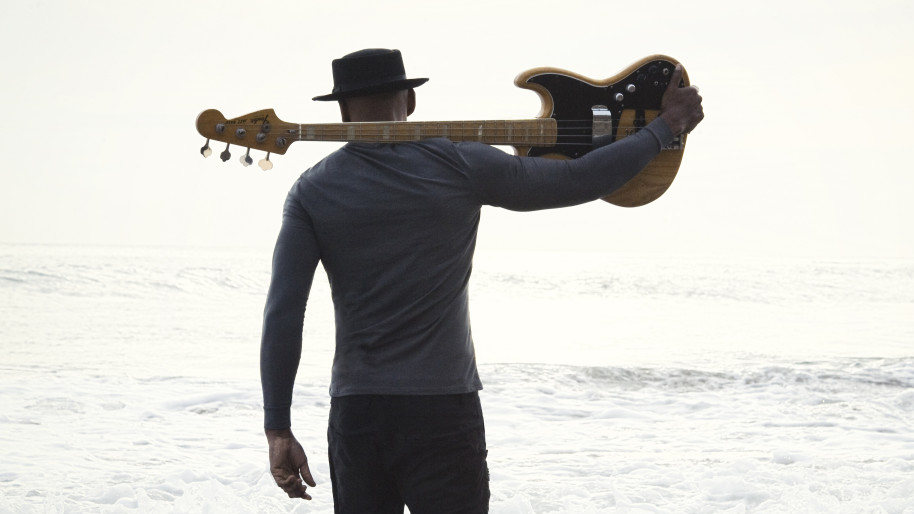
4. The bass players we admire most only played one bass
“When I think of the guys that really made an impact on me - Jaco [Pastorius] played a 1962 Jazz Bass, Stanley Clarke plays an Alembic bass, Victor Wooten plays that Fodera, Larry Graham plays a Fender Jazz Bass and James Jamerson played a Fender Precision.
“They didn’t walk around with five basses and say, 'For this song, I’m going to play my blahblahblah…’ They were connected to their instrument and their voice became that instrument. And this includes me, too, because I’ve been playing the same [Fender] Jazz Bass since my mom bought it for me in 1977. Although it’s really fun, and I have, like, 35 basses or something like that, I only really ever play one consistently.
“This is just something to consider. It’s not a rule, because music is music and there’s a lot of merit to switching basses, and sometimes I really have to fight the limitations of my Jazz Bass. Just consider that if you’re looking for an individual voice on your bass, you might not want to switch around so much.”
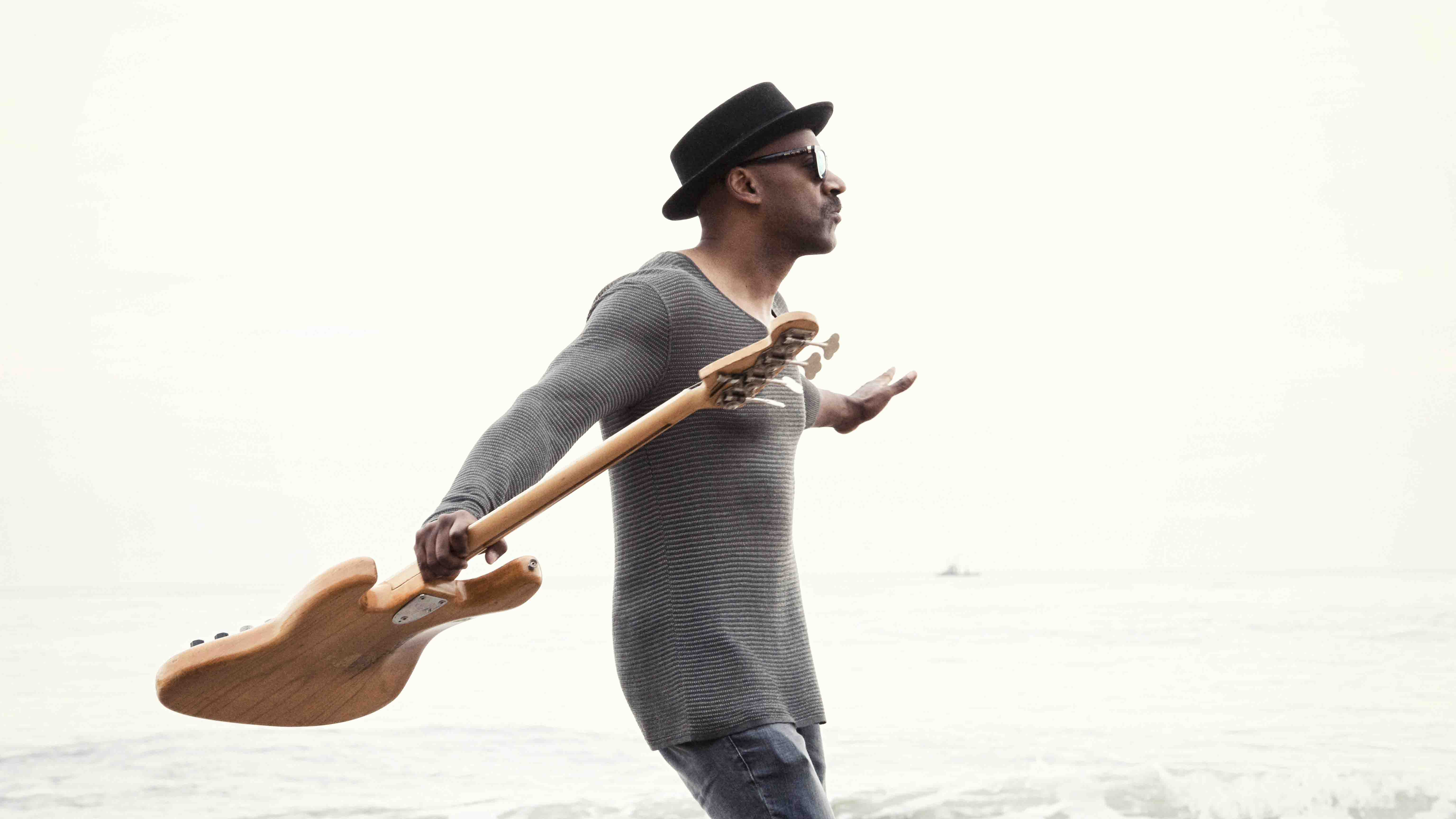
5. Take care of yourself
“I don’t drink and I don’t smoke. You know, it can take me a while to find the right headspace when I’m writing music or when I’m getting ready to go onstage. I’ve got to do a little bit more work than somebody who just smokes a spliff or something, you know what I mean?
“But I think, in the long run, man - and I’ve been around a long time - I think it’s really benefitted me to keep myself together. It’s so easy - especially when you’re travelling on the road - to not get the right sleep. There are always people around after every concert wanting to invite you to hang out at the bar or wherever and it’s very dangerous. I’ve seen a lot of musicians suffer.
“If you work in an office for a big corporation, you can’t show up high, period. You’re going to get fired but, as a musician, you can get away with a lot. People know you're high but you’ve played so great that they just forgive you or they say, ‘That’s part of it!’
“That’s dangerous, because nobody’s going to call you up for being under the influence. All they’re going to do when they read in the newspaper that you checked out at a young age is go, ‘Oh yeah, that’s what musicians do!’ You have to have the self-discipline to keep yourself together. I think that’s really important.”
Don't Miss
Stu Hamm's top 5 tips for bassists